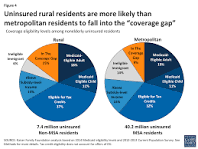Rural urban health issues. Differences between the rural and the urban health issues
Rural urban health issues. There are several differences between the rural and the urban health issues. The difference in healthcare needs between rural and urban populations is caused by variations in; access to healthcare, healthy behaviors, population size and the environment. The following essay is a comparison between rural and urban health from a community health point of view (Caldwell, Ford, Wallace, Wang, & Takahashi, 2016).

Rural urban health issues.In what ways might health promotion activities for rural populations differ from those designed for urban populations?
Health promotion services in the rural setting would focus on eliminating unhealthy behaviors such as smoking. The rural setting does not provide for smoking zones restrictions as it is in the urban setting. The health promotion activities would involve education on the side effects associated with tobacco smoking such as allergy, respiratory complications, and lung cancer. Additionally, health promotion activities for the rural setting would involve measures to reduce and prevent obesity. A large portion of the rural population lives sedentary life does not practice regularly and does not access proper nutrition. Unlike the urban population, facilities for accessing physical exercises such as gymnasiums and aerobics sessions, are available not available in rural setting. Regular exercising prevents obesity and the associated complications such as hypertension, diabetes mellitus (Spoont, Greer, Su, Fitzgerald, Rutks, & Wilt, 2014).
Rural urban health issues. Assume you are a community health nurse in a rural community. Describe your own approach to problem solve overuse of the emergency room for minor childhood illnesses by the population groups.
Firstly, I would increase the awareness of childhood illnesses. The awareness program would include identification of childhood illnesses and home-based interventions. Educating on child hood illnesses increases the ability of parents to identify developing illnesses among their children and the steps to take so as to prevent the progression of the illness to severe stages, where the child would seek medical attention. Additionally, educating and encouraging parents on the significance of regular medical check-ups will reduce the overuse of emergency use in the management of childhood illnesses.
Rural urban health issues. Interview a classmate who was raised in a rural community about his or her family and school life. Determine what he or she considers to be his or her best experiences growing up. Compare the classmate’s best experience with your own.
One of the experiences during rural life is reduced access to health care facilities, since the population in the rural setting is less than the urban setting. Therefore, the health care facilities are less proportionately. Therefore access to specialized medical care takes longer periods of time than in urban setting. Furthermore, access to other facilities such as physiotherapy and physical exercise facilities is limited.
In conclusion, the health issues for the rural setting are different from the healthcare concerns facing the urban population. Therefore, the approach to addressing such issues is different.
Rural urban health issues. References
Caldwell, J. T., Ford, C. L., Wallace, S. P., Wang, M. C., & Takahashi, L. M. (2016). Intersection of living in a rural versus urban area and race/ethnicity in explaining access to health care in the United States. American journal of public health, 106(8), 1463-1469.
Spoont, M., Greer, N., Su, J., Fitzgerald, P., Rutks, I., & Wilt, T. J. (2014). Rural vs. Urban Ambulatory Health Care: A Systematic Review. VA-ESP Project# 09-009; 2011. Washington DC: Departmen

 +1 862 207 3288
+1 862 207 3288 